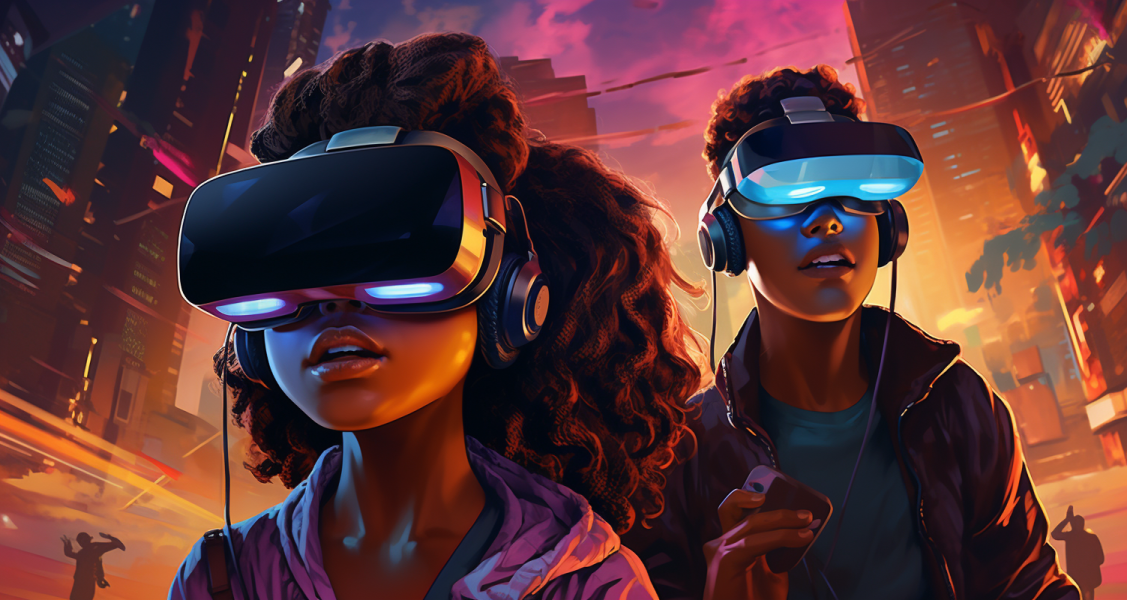Virtual Reality (VR) has transformed from a futuristic concept into a cornerstone of the gaming industry. Dive into the immersive world of VR gaming as we explore its evolution, impact, and what lies ahead.
A Glimpse into the Past: The Genesis of VR
- 1960s: The concept of VR can be traced back to Morton Heilig’s Sensorama, a machine that provided multi-sensory experiences.
- 1980s: Jaron Lanier coined the term “Virtual Reality,” and the first VR headsets were introduced, albeit with limited success due to technological constraints.
The 2010s: The Resurgence of VR Gaming
- Oculus Rift (2012): The successful Kickstarter campaign for Oculus Rift reignited interest in VR, setting the stage for modern VR gaming.
- PlayStation VR (2016): Sony’s entry into the VR market brought high-quality virtual experiences to mainstream gamers.
The Immersive Experience: What Makes VR Unique
- 360-Degree Environments: VR offers a full panoramic view, immersing players in the game world.
- Interactivity: Motion controllers allow players to interact with the virtual environment in intuitive ways.
- Presence: The feeling of “being” in the game, a sensation unique to VR, heightens emotional responses and engagement.
Popular VR Titles: A New Gaming Frontier
- Beat Saber: A rhythm game where players slash beats represented by colored blocks.
- Half-Life: Alyx: Valve’s return to the Half-Life universe, hailed as a masterpiece of VR design.
- Superhot VR: Time moves only when the player moves, adding a strategic layer to this first-person shooter.
Challenges and Concerns
- Motion Sickness: VR can cause discomfort for some players, though developers are finding ways to minimize this.
- High Entry Cost: Quality VR headsets and the PCs or consoles to run them can be expensive, though prices are gradually decreasing.
The Future of VR Gaming
- Wireless Headsets: The quest for untethered VR experiences is leading to innovations like the Oculus Quest series.
- Social VR: Platforms like VRChat are pioneering social interactions in virtual spaces.
- Augmented Reality (AR) Integration: Combining VR with AR can result in mixed-reality games, blending the virtual and real worlds.
VR gaming is more than just a trend; it’s a transformative force in the world of interactive entertainment. As technology continues to advance, the line between the virtual and real will blur, offering experiences previously thought impossible. Whether you’re a seasoned gamer or new to the world of VR, there’s no denying that virtual realities are reshaping the gaming landscape.







